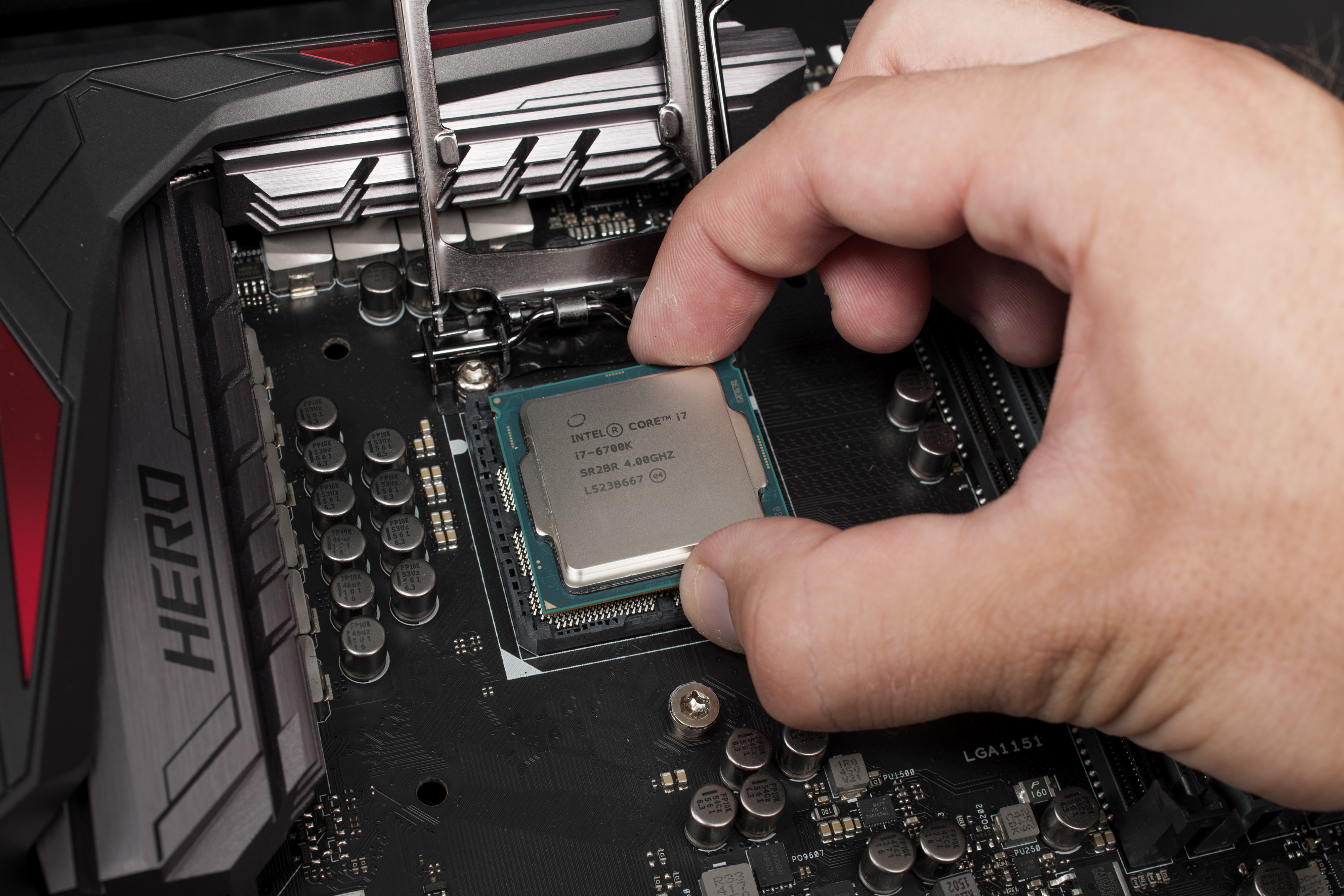Question: How To Check Cpu Overclock
Go to the CPU settings in your BIOS – different BIOS versions have other names for this section. Essentially, you’re looking for settings related to the CPU clock, clock multiplier/clock ratio, and CPU VCore (CPU voltage). If these are increased from the default, your CPU is overclocked.
How do I know if my CPU is overclocked?
Hold down the DEL key during boot and enter the BIOS screen. It will likely have a CPU overclocking option. Click on that. If it says the CPU multiplier is set to 39, it is overclocked to 3.9GHz.
How do I check my CPU’s overclocking speed?
If you’re wondering how to check your clock speed, click the Start menu (or Windows* key) and type “System Information.” Your CPU’s model name and clock speed are listed under “Processor”.

How do I know if my CPU or GPU is overclocked?
Fortunately, testing for CPU or GPU overclocking is fairly straightforward. Checking if your CPU or GPU is overclocked Use CPU-Z to see the clock frequency of your CPU. Use GPU-Z to check your GPU clock frequency. Use MSI Afterburner to see the GPU clock speed. Find out the CPU clock speed in the BIOS.
How do I enable CPU overclocking?
Find the “Adjust CPU Ratio” option, representing the CPU frequency multiplier. Highlight the option’s “Auto” setting and press “Enter” to display a list of alternative locations. Choose a higher number than the existing setting. Press “Back”.
Does Overclocking a CPU Increase FPs?
Overclocking forces the CPU to run at a higher speed. This can give you more FPs and can significantly improve your gaming performance.
Does an overclocked CPU always run at the overclocked speed?
It depends entirely on the BIOS settings you use to set your overclock whether the CPU is running on the set clock all the time or not.
Can I overclock RAM?
Overclocking is often thought of in a CPU or GPU context, but you can also overclock RAM (Random Access Memory) to achieve faster speeds. The speed of RAM, measured in MHz, refers to the data transfer rate. The faster the data transfer speed, the better the RAM performance.
How can I overclock my Ryzen 3600 CPU?
Overclock and tweak by BIOS Power on and boot at 4200 MHz (42 Multiplier). Apply 1.40V to the CPU (or leave it on auto). Work up from there until the system becomes unstable, then go back down by at least 100 MHz.
How do you know if a card is overclocked?
Go to your BIOS, check your motherboard-specific BIOS for the overclocking section, and see if the CPU is set higher than advertised in the ad. Suppose you want to check if there has been overclocking in the past.
Is it safe to overclock the CPU?
Is overclocking safe? Overclocking is far less hazardous to the health of your components than it used to be – with fail-safes built into modern silicon – but you’ll still be running your hardware outside of officially rated parameters. That’s why, historically, it’s been overclocked on legacy components.
How do I know if my RAM is overclocked?
You can click the Memory tab instead to find out what speed you use your memory with CPU-Z. It gives you the clock rate (NOT the data rate), which is HALF the data rate, so double the number, and you know what you’re doing.
How do I check my overclocking settings?
Open the Task Manager by right-clicking on the taskbar, selecting Task Manager, pressing CTRL + ALT + DELETE, and then selecting Task Manager. Select the Performance tab and check the specified “Speed”. If this is higher than the turbo frequency of your CPU, then it is overclocked.
Can you overclock the CPU in BIOS?
Since you can change settings like voltages and frequencies from the BIOS, it is possible to use it to manually overclock your CPU to achieve a higher clock speed and possibly better performance.
Is it better to overclock the CPU or GPU?
It shortens lifespan when you overclock any part of your PC, be it the CPU, GPU, or RAM. Plus, overclocking your graphics card makes it run hotter and consumes more power. When overclocking a CPU, there is a real threat that you could permanently damage it if you clock it too high.
Should I overclock Ryzen 5 3600?
First of all, don’t bother manually overclocking the ryzen 5 3600. You won’t be able to go above 4.3 GHz, which is only 100 MHz above the nominal boost clock, and that too with a good cooler and silicon lottery. The small performance gain is not worth it.
Should I overclock my laptop’s CPU?
No. under no circumstances should you ever overclock a computer. The cooling isn’t nearly good enough to support overclocking.
Is overclocking worth gaming?
Using overclocking helps to squeeze extra performance out of the components. You can use the extra juice to improve the graphics or boost the FPS enough for a more tolerable gaming experience. Overclocking the CPU provides an additional performance boost, while with the GPU, the results are more superficial.
Can you overclock past Max Boost?
Can I overclock a CPU past the maximum boost frequency? Sure, you can, but it can cause problems like processor overheating and instability in the system’s proper functioning. Due to overheating, your system may crash sometimes. – Quora.
How can I overclock without BIOS?
How To Overclock CPU Without BIOS: The Processes Download Intel XTU. The first step is downloading and installing Intel XTU from the Intel site. Run benchmark. This is to test your PC and get your current benchmark score. Go to Advanced tuning—overclocking system. Increase the multipliers. Increase the tension.





